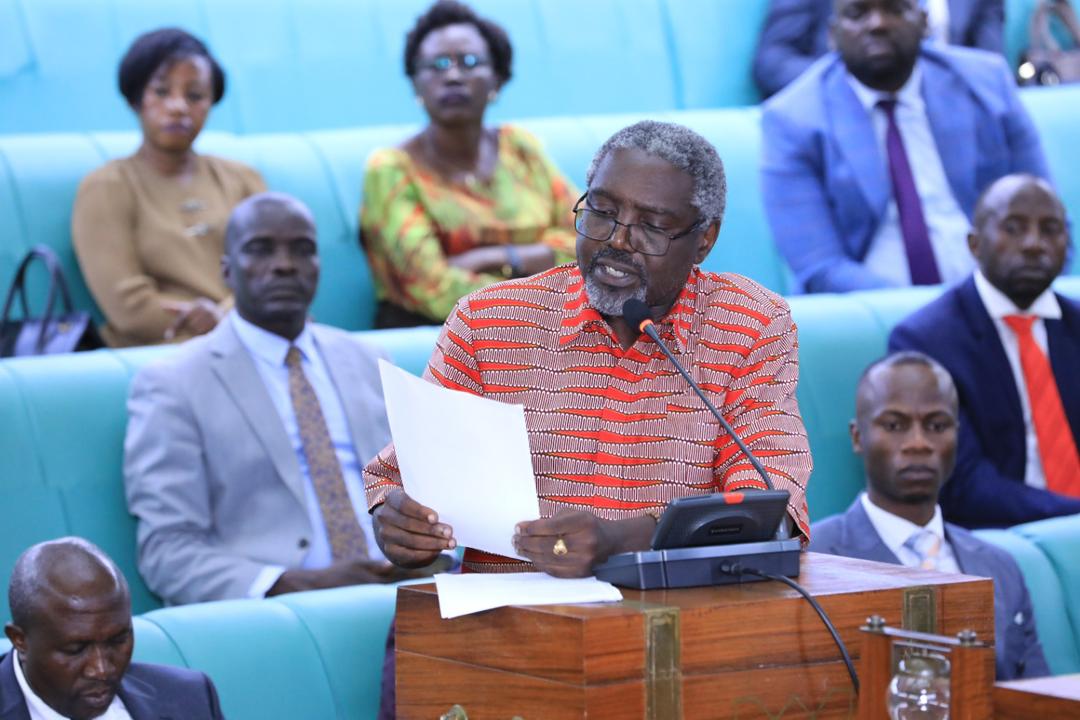Parliament Grants Leave for Bill to Tie Political Party Funding to National Consultative Forum Membership

The Ugandan Parliament has granted leave to Faith Nakut Loru, the District Woman MP for Napak, to introduce a controversial private member’s bill that seeks to restrict government funding to political parties and organisations unless they are members of the National Consultative Forum (NCF).
The proposed legislation, titled The Political Parties and Organisations (Amendment) Bill, 2025, was seconded by Afidra Olema Ronald ,MP Tororo County and Yusuf Mutembuli, MP, Bunyole East County.
It aims to amend the existing Political Parties and Organisations Act, Cap. 178, with wide-ranging implications for how political parties operate and are funded in Uganda.
According to the bill’s provisions, government funding and public resources would only be available to political parties represented in Parliament and actively participating in the NCF.
This marks a significant shift from the current law, which does not condition public funding on NCF membership.
The NCF would be structured into two main organs including the Inter-Party Organisation for Dialogue (IPOD) for parties with parliamentary representation and the Forum for Non-Represented Political Parties and Organisations for those without seats in Parliament.
The bill outlines IPOD’s functions, including fostering dialogue, advising government on policy, promoting peaceful coexistence, and offering a neutral platform for political engagement.
The proposal has drawn immediate criticism from several political actors.
Jimmy Akena, President of the Uganda People’s Congress (UPC), described the bill as "diabolical", warning that it seeks to undermine political pluralism and is "unconstitutional."
“This bill is clearly targeted at weakening political parties by tying their operations to a government-controlled body,” Akena said, calling for a national dialogue on fair political financing.
The Leader of Opposition, Joel Ssenyonyi, also expressed reservations not about this bill specifically, but about the pace of legislative processes in Parliament.
Speaking in relation to the Uganda People’s Defence Forces (Amendment) Bill, 2025, Ssenyonyi said the process is being rushed.
However, Speaker of Parliament Anita Among defended the pace, saying Parliament is merely striving for efficiency.
The memorandum attached to the new bill claims it is intended to promote political tolerance, institutionalize structured dialogue, and reduce fragmentation within Uganda’s political landscape. It argues that requiring parties to join the NCF will help foster more collaborative governance.
If passed, the bill would formally recognise the IPOD and the Forum for Non-Represented Political Parties as official structures of the NCF, empowering them to facilitate policy dialogue and inter-party cooperation.
Currently, Uganda’s Political Parties and Organisations Act allows for the formation of alliances and joint platforms, but does not condition financial support on forum membership.
Critics warn that the proposed law could disadvantage smaller or opposition parties, especially those skeptical of joining state-linked forums. It may also centralize control over political financing, further complicating the country's democratic landscape.
The bill, now officially gazetted, is awaiting full parliamentary debate. If adopted, it could significantly reshape political funding and party operations ahead of Uganda’s next electoral cycle.



0 Comments